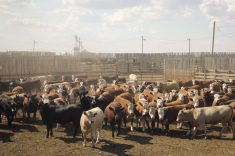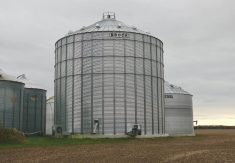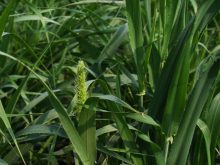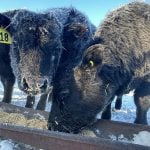Smithfield Foods, the world’s largest pork producer, said Tuesday it will soon raise half of its hogs on feed that does not contain the additive ractopamine, a lean-muscle-promoting drug that has been banned in China and Russia.
Two Smithfield plants, which handle 43,000 hogs a day or about 10 per cent of the U.S. industry, already are ractopamine-free, CEO Larry Pope said at the BMO Capital Markets Farm to Market Conference in New York.
On June 1, the company will convert a third plant to be ractopamine-free. When that happens “over 50 per cent of our operations will have no ractopamine as part of their feed rations,” Pope said.
Read Also

U.S. grains: Soybeans continue gains on Trump’s China comments
Chicago | Reuters – Chicago Board of Trade soybeans continued a three-day rally on Friday, fuelled by President Donald Trump’s…
China, the world’s largest pork consumer and the third largest market for U.S. pork with sales of over US$800 million last year, wants pork from the U.S. to be verified by a third party from March 1 to be free of ractopamine.
Russia, which imported US$550 million worth of U.S. beef, pork and turkey last year, has banned imports of meat from the U.S. due to the presence of the food additive.
Smithfield, which was not immediately available for additional comment, in February said it was in the final stages of converting its plant in Tar Heel, N.C., the world’s largest pork-processing facility, to be ready to meet China’s new requirement before the March 1 deadline. — Reuters













